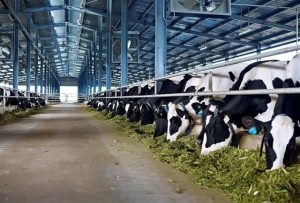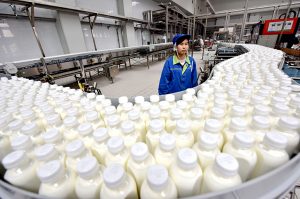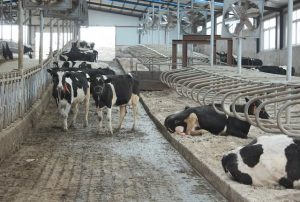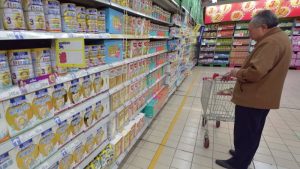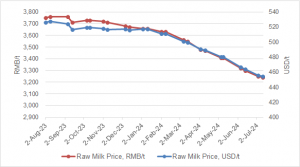
He used to raise some 20 yaks at his pastureland for selling beef and the milk produced by these yaks was barely enough for his kitchen use. Therefore, when Yulrabgye hailing from Guinan County in Hainan Tibetan Autonomous Prefecture learned that his fellow villagers traded the milk in exchange for cash, he was surprised.
It was a yak milk collection center set up by a local dairy company that had bought the milk, and agrotechnicians assigned by the company offered training to the herders on improving milk production. The company buys the milk before being processed into dairy products.
In 2017, he decided to follow his fellow villagers and made 20,000 yuan (about 3,100 U.S. dollars) by selling milk alone this year.
With technical support from dairy producers and closer cooperation with the producers, the herders now turn the yak milk into a cash cow on the Qinghai-Tibet plateau.
China has eradicated absolute poverty and is making efforts for rural vitalization.
The yak milk collection center, established in 2015 with the help of the local government, has attracted some 280 households to sell their yak milk, said Zhaxi Dondrup, manager of the center.
“Almost every household in nearby villages raises yaks and sends their yak milk here now,” Zhaxi said, adding that the milk industry has added 10,000 yuan on average to the annual income of each household.
Currently, there are 13 yak milk collection centers in the prefecture of Hainan.
The collected milk is transferred to a dairy company in Gonghe County with dozens of yak milk powder production lines.
Padma Dorje, manager of the company, said the new production lines have a daily milk processing capacity of 400 tonnes.
He added that 300 grams of milk powder is sold for up to 500 yuan and the product is in great demand with a shortage of supply because of its supreme quality.
“We have planned to set up more yak milk collection centers to help generate more income for the herders,” Padma said.
The company has strict milk collection procedures, which have prompted Yulrabgye to breed better quality yaks.
“Better breeds also lead to better yak meat,” he said, adding that the village cooperative helps contact buyers and negotiate for better meat prices.
Xu Haidong, head of Gonghe’s rural vitalization bureau, said the county government will make efforts to establish a township-level cooperative combining the ones at the village level to further boost the yak milk industry.




